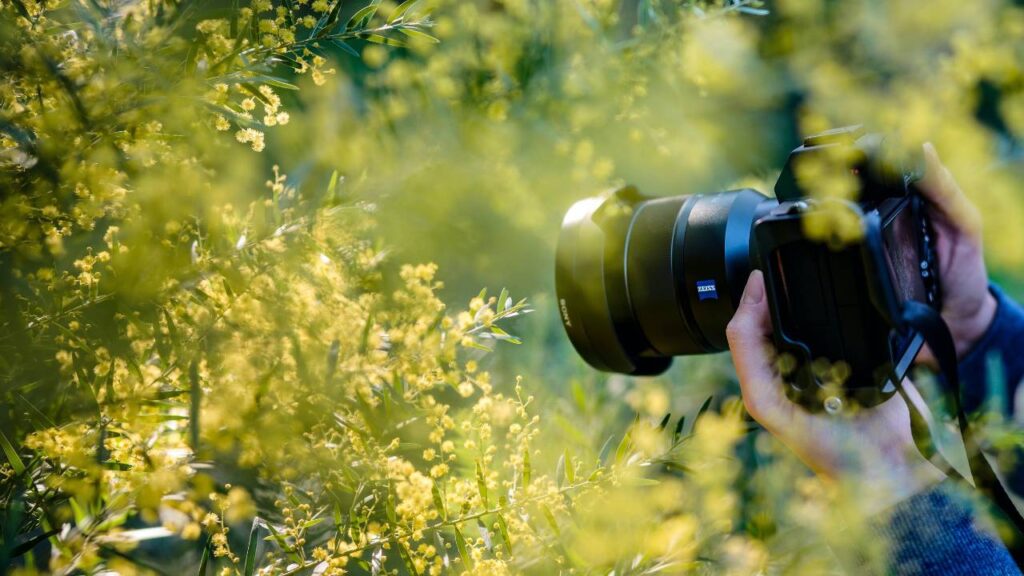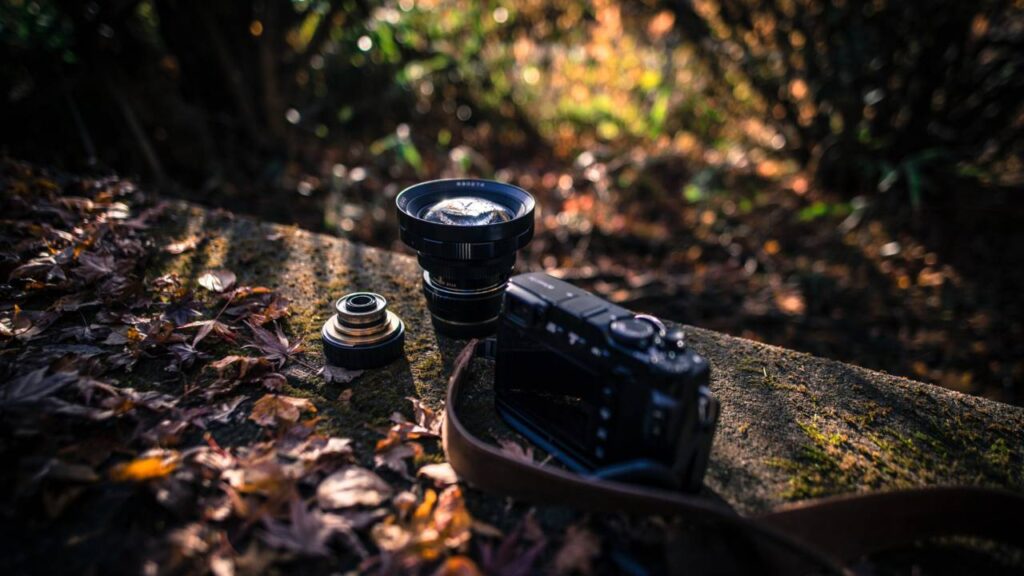Pursuing Photography in Retirement
Retirement offers the perfect opportunity to explore new hobbies and interests, and one option worth considering is photography. By pursuing photography in your golden years, you can tap into a creative outlet that allows you to capture the world around you and create lasting memories. Whether you’re a seasoned shutterbug or an aspiring amateur, photography can provide numerous benefits for individuals navigating their retirement years.
One of the great things about photography is its accessibility. You can start with just a smartphone and gradually invest in more advanced equipment as your skills and passion develop. Furthermore, photography is a hobby you can enjoy alone or in the company of others, making it the perfect way to stay active and engaged in your community. Photography in retirement can encourage you to venture outdoors, explore new environments, and meet new people, all while capturing precious moments.
Unlocking Creativity Through Photography

Photography provides a fantastic opportunity for retirees to harness their creativity and enjoy a fulfilling pastime. With the newfound free time stemming from your redundancy pension, you can explore this art form at your leisure while also documenting cherished memories with family.
As you delve into photography, your creativity will expand, allowing you to view reality with a fresh perspective. This can inspire you to experiment with different styles and techniques, transforming ordinary moments into captivating images. By engaging in photography, you are not only embracing an artistic pursuit but also developing valuable skills that will enrich your life.
Connecting with your family through photography is an enjoyable way to capture precious moments while enhancing your bond. Portraiture, in particular, provides an excellent platform for documenting each family member’s unique personality. Collaborating with loved ones on creative projects can also encourage mutual inspiration and support among your family circle.
Photography offers a range of benefits for retirees, including cognitive, emotional, and social benefits. Staying active is one notable advantage, as a photo walk encourages you to keep moving and interacting with your surroundings. In addition, immersing yourself in a creative activity has been shown to lower stress hormone levels, promoting your overall well-being.
Essential Photography Skills and Techniques
When you’re pursuing photography as a hobby in retirement, it’s important to learn some essential skills and techniques to improve your craft. Let’s take a look at some key aspects you should focus on to enhance your photography experience.
Understand your gear: Familiarise yourself with your camera and its settings. Learn about the exposure triangle, which consists of aperture, shutter speed, and ISO. Understand how these settings work together to create the perfect shot. Mastering your gear is the first step towards capturing stunning images.
Learn composition guidelines: Improve the visual appeal of your photos by following composition guidelines like the rule of thirds, leading lines, and natural framing. These concepts will help you create more balanced and appealing images. Experiment with different angles and perspectives to develop your style and create unique shots.
Hone your portrait skills: Retirement is an excellent opportunity to connect with family through portraiture. Learn techniques to make your subjects feel comfortable, such as engaging in conversation and giving clear directions. Ensure a flattering lighting setup and consider the importance of the background in your portrait shots.
Capture beautiful landscapes: Landscape photography can be incredibly rewarding, allowing you to explore and showcase the beauty of the world around you. Maintain a sharp focus, ensure the right exposure, and experiment with interesting foregrounds to create depth in your images. Remember that patience and timing play a vital role when capturing engaging landscape photos.
Lighting knowledge: Understanding different types of lighting and their impacts on your images is essential. Learn about natural and artificial light sources and how to utilise them in various situations. Additionally, get to know the golden hour and blue hour, which offer some of the most beautiful lighting conditions for outdoor photography.
As you progress in your photography journey, never stop learning and improving your skills. Keep experimenting with diverse photography styles, challenge yourself with new subjects, and, most importantly, enjoy your creative process.
The Mental and Physical Benefits of Photography

Pursuing photography as a hobby in retirement comes with numerous mental and physical health benefits. As you explore the world through your camera lens, you’ll have the opportunity to engage in outdoor activities, enhancing your overall well-being and happiness.
By frequently venturing outdoors for photo sessions, you expose yourself to fresh air and natural environments, which can contribute to reducing stress levels. Moreover, photography can improve cognitive function by stimulating your creativity, problem-solving skills, and memory. You might find that recalling specific details of a scene or composing a shot exercises your brain in new and exciting ways.
Photography also offers an emotional outlet, allowing you to express yourself artistically and capture precious moments that hold meaning to you. With every picture you take, you are creating a personal visual narrative that can evoke a variety of emotions. Engaging in this creative activity is known to lower stress hormone levels, boosting your mental health and ultimately impacting your physical health.
Another advantage of taking up photography in retirement is the possibility of developing a supportive community by joining a photography club. You can connect with like-minded individuals, exchange ideas, and share your passion for photography. This social interaction not only nurtures creativity but also promotes a sense of belonging, which can be vital for maintaining a positive mental well-being.
The Social Aspects of Photography
Photography is not only a rewarding hobby for you to pursue in retirement, it also offers fantastic opportunities to expand your social life. As you develop your skills, you’ll find it easier to connect with fellow photography enthusiasts, both online and offline.
You may choose to join a camera club to immerse yourself in a community of like-minded people who share your passion. Camera clubs provide a supportive environment where you can learn from experienced photographers, participate in workshops, and join group outings to practise your craft. These shared experiences allow you to create long-lasting friendships and strengthen your social network.
Your newfound hobby can also help bridge the gap with family and friends. By capturing and sharing precious memories through your photographs, you’ll create a visual bond that spans generations. Family gatherings, holidays, and special events will become opportunities for you to preserve priceless moments while engaging with your loved ones.
Furthermore, engaging in photography-related activities gives you the perfect excuse to step out of your comfort zone and explore new destinations. Visiting new locations for photo shoots can lead to serendipitous encounters with people who share your interest, making it easier to strike up conversations and make new connections.
As you grow more confident in your abilities, consider sharing your work on social media platforms. Not only will this showcase your talent, but it will also open doors to new friendships, critiques, and opportunities to collaborate with other photographers. Social media communities offer a wealth of inspiration, camaraderie, and support as you refine your skills and develop your personal style.
Combining Photography With Other Interests

Pursuing photography in retirement allows you to combine it with various interests and passions. Doing so can make your hobby more engaging and purposeful. Let’s explore how you can merge photography with different aspects of your life.
Travel: As you embark on new adventures, photography becomes the perfect companion. Capture the beauty of diverse landscapes and cultures during your trips. Documenting your experiences will not only help you relive special moments but also create mementoes to share with family and friends.
Gardens and Nature: If gardening and nature are your passions, photography can add a new dimension to your love for the outdoors. Appreciate the magnificence of your home garden, or visit local parks and botanical gardens to capture their splendour. Focusing on flora and fauna can provide you with a sense of peace as you explore the intricacies of nature’s beauty.
Family: Cherish memorable moments with your family by improving your portrait photography skills. Enhance your technique to take better photos of your grandchildren, friends, and pets. Preserve emotions and memories that you can look back upon and share with those closest to you.
Interests: Your hobbies and personal interests provide excellent photographic subjects. If you’re an animal lover or an architectural enthusiast, turn your focus towards them. Capture your pursuit, be it cooking, attending sports events, or exploring urban landscapes. Bringing your interests into photography adds depth and purpose to your hobby.
Remember, as you combine photography with your other interests, it’s essential to learn and adapt your skills to each situation. Invest in the right equipment and seek advice from other photographers, whether that’s through workshops or online forums. Pursuing photography in retirement opens a creative outlet that can lead to a fulfilling and enjoyable experience.
Transitioning From Amateur to Semi-Pro
Gaining experience in photography during your retirement can be a fulfilling pursuit. As you dive deeper into this hobby, you might find yourself wanting to transition from an amateur photographer to a semi-professional one. Here are a few steps to help you achieve that goal.
First, ensure that you have a professional camera. While starting with an entry-level camera is suitable for a beginner, upgrading to a professional camera will greatly improve the quality of your photos and make it easier to apply various techniques learned along the way.
Next, consider taking classes in photography to further develop your skills. There are many classes available, both online and in-person, that cater to different levels of experience. Taking courses will not only help you become more proficient, but will also give you the opportunity to connect with like-minded individuals who share your passion.
In addition to classes, consider teaching others as a way to enhance your own knowledge. By teaching photography to others, be it in a formal setting or informally with friends and family, you’ll discover new perspectives and improve your own understanding of the subject.
Building a portfolio showcasing your work is also essential when transitioning from an amateur to a semi-professional photographer. Having a strong portfolio will demonstrate your skills and experience, making it easier for potential clients or collaborators to see your value.
Lastly, be open to accepting various photography opportunities, including paid ones. The more experience you gain as an amateur photographer, the smoother your transition to semi-professional will be.
Planning for a Photography-Focused Retirement
Embarking on a photography-focused retirement can be an exciting and fulfilling way to spend your leisure time. To make the most of this opportunity, it’s essential that you plan ahead and prepare for this phase of your life. Here are some steps to help you get started on your journey towards a satisfying retirement filled with photography.
Firstly, consider your motivation for pursuing photography in retirement. Understanding why you’re passionate about photography will help you set realistic goals and maintain your enthusiasm over time. Whether it’s to capture memories, explore new locations, or learn new skills, having a clear purpose will guide your decisions throughout your retirement planning process.
Next, think about the financial aspects of your retirement. Engaging in photography as a hobby in retirement doesn’t have to be expensive, but it’s crucial to plan your finances to ensure you can comfortably enjoy this pastime. Safeguarding your photography venture by researching photography equipment and creating a budget for purchasing and maintaining your camera gear is essential. Be honest about how much you’re willing to invest in your hobby and develop a saving strategy to fund your photography expenses.
Furthermore, assess your current photography skills and knowledge. Setting achievable goals for improving your abilities will keep you motivated and engaged in your retirement. Consider taking photography courses or workshops to enhance your skills and learn new techniques. Joining a local photography club or participating in online photography communities can provide valuable support, guidance, and inspiration throughout your retirement.
As you plan your retirement, also consider how photography will fit into your overall lifestyle. Recognising the importance of pension planning will ensure you have the financial means to invest in your passion and any related expenses. Keep in mind that photography can be a very active hobby, encouraging you to explore new environments and engage in physical activity. Make sure you’re prepared for the physical demands of your chosen photography pursuits by staying active and prioritising your health.
Finally, make time for your other interests and priorities. While photography may be a significant part of your retirement plans, it’s essential to include other leisure activities, social engagements, and personal goals as part of a balanced retirement. This approach will help you maintain your overall well-being and prevent burnout, ensuring you can continue to enjoy photography throughout your retirement years.
Conclusion
Pursuing photography in retirement is more than just embracing a hobby; it’s about weaving a tapestry of memories, enhancing creativity, and fostering meaningful connections. As retirees step into this world of imagery, they get an opportunity not only to capture fleeting moments but also to shape their golden years with purpose, passion, and positivity. Planning ahead, understanding the nuances of the art, and combining it with other interests can lead to an enriching retirement experience. Just like every well-composed photograph tells a story, let your retirement be a compelling narrative of exploration, creativity, and fulfilment.